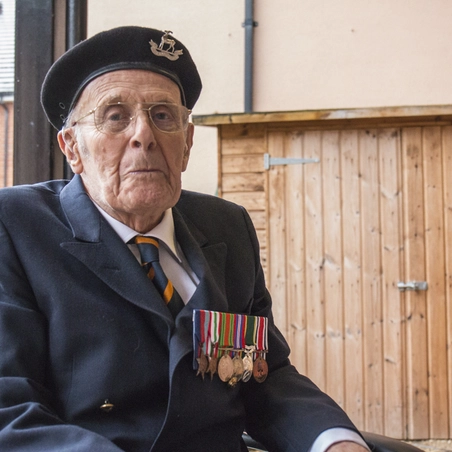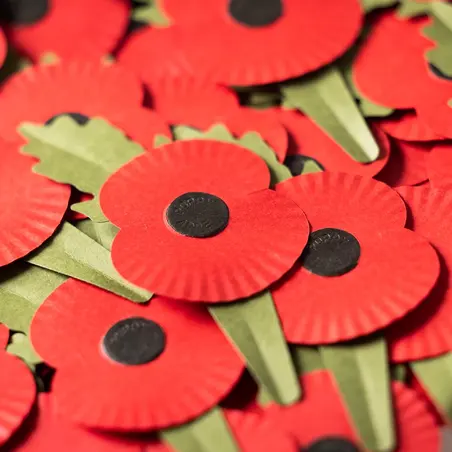In 1958 Peter Cherry was sent to fight in Cyprus after less than three months training. From trying to disperse riots to looking for terrorists, this is his story.
I was called up for National Service after I had just turned 19 in January 1958. I knew to be expecting it sometime once you turn 18, but it was a question of waiting.
I left my home in Ashwell, Hertfordshire, and got the train to the Suffolk Regiment’s training base in Bury St Edmunds, where I was picked up in a truck and taken to the depot.

After the first week, that was it: you were in it and on patrol.Peter Cherryrecalls the EOKA Campaign in Cyprus.



After getting my kit, I did basic training for 10 weeks – physical, marching, how to use a rifle – but I didn’t find out where I was being posted until after the passing-out ceremony. I could have been doing anything.
Almost half of my intake of 70 were to go and join a battalion in Cyprus. We were told that there was a conflict out there – no more details than that – and that we’d be trained again once there for a week. The conflict was all on the telly, anyway, so I knew about it.
After a week’s leave, I went back to Bury. At about 06:00 the next morning, we were put on a bus that took us to RAF Hendon. When we got there, we had something to eat, and then at lunchtime they said, “No, you can’t fly from here,” so they took us down to Southend.
At eight o’clock at night we finally took off, flying first to Gibraltar, then from there to Malta, before finally touching down in Nicosia at 09:00 on 5 May 1958 – it was a long old flight!
The idea was that we were a top-up of men in the Suffolks, replacing those who were coming back. We were six to a tent, based next to Nicosia airport. It was just a big field really that they’d made into a camp.
We were told about the dangers around us during the week’s training – keep your eyes open, keep alert at all times, don’t leave your weapon laying about, and if you see anything suspicious, sort it out. After the first week, that was it: you were in it and on patrol.
My job initially was to go up and down the streets of Nicosia.
It was bad, though, when the riots happened in the town. Lorries would steam out of the camp, then we’d all have to line up and let them throw what they were throwing at you. You were just there to keep the two sides, the Greek and Turkish islanders, apart. I had a tin hat and a shield, but the shield wouldn’t stop a lot – it was about as useful as a dustbin lid!
You still had your rifle with you, but our aim was to just try and get them to disperse. They were clever. All the women and children in the front, then the men behind, and they were the ones who were heaving the bricks and rubbish over the top. So it made it difficult to go in.
My second assignment was with the Horse Guards. We’d go out for a week or two at a time, just driving along the same route, back and forth, throughout the night, resting up in the day. We were waiting to see if anyone would try to pick us off.
Our armoured personnel carriers would get red-hot during the day; it was like sitting in a furnace. We had a couple of skirmishes. Someone would take a pot shot at you and you’d hear a ping. Everybody would bail out the back, spinning to face where the shot came from – then we’d go and try to catch them. We couldn’t see a thing, and even though the vehicle got shot at a couple of times, we never caught a soul.
We’d been trained to stay calm but it was still strange ... that we didn’t have any fear.
Looking back, I know we’d been trained to stay calm but it was still strange, considering how young we were, that we didn’t have any fear. It didn’t worry me that someone was taking pot shots at me; I didn’t consider what could happen. It seemed to be blanked out.
A truce was called in December after I’d been there for about six months. We still did patrols, but the truce meant we could go out at night down the town, have a few drinks and come back again safely.

My stint only lasted another few months, then we were told we were being shipped home again. It would be many years before I learned how many of our lads were killed during the Cyprus emergency – more than 100 all told, I believe.
We were aware at the time that people were getting killed. We weren’t officially told about it, but you would hear it. Really, it was just the luck of the draw – not being in the wrong place at the wrong time.





